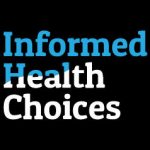
Informed Health Choices Podcasts
Each episode includes a short story with an example of a treatment claim and a simple explanation of a Key Concept used to assess that claim
| 1 Comment | Evaluated
Informed Health Choices Primary School Resources
A textbook and a teachers’ guide for 10 to 12-year-olds. The textbook includes a comic, exercises and classroom activities.
| 0 Comments | Evaluated
Ebm@school – a curriculum of critical health literacy for secondary school students
A curriculum based on the concept of evidence-based medicine, which consists of six modules.
| 0 Comments | Evaluated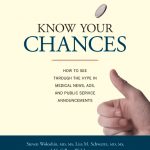
Know Your Chances
This book has been shown in two randomized trials to improve peoples' understanding of risk in the context of health care choices.
| 0 Comments | Evaluated
Thinking, talking, doing science
An experimental educational intervention in teaching science at primary schools.
| 0 Comments | Evaluated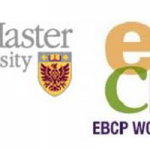
McMaster Evidence-Based Clinical Practice Workshop Resources – Therapy module
McMaster Evidence-Based Clinical Practice Workshop – Therapy module.
| 0 Comments
McMaster Evidence-Based Clinical Practice Workshop Resources – Systematic review module
McMaster Evidence-Based Clinical Practice Workshop – Systematic review module.
| 0 Comments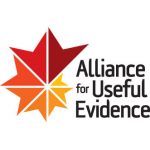
Using research evidence: a practice guide
NESTA’s guide to using research evidence to inform decisions in policy and practice.
| 0 Comments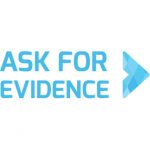
Anecdotes, testimonials and personal studies
‘Ask for Evidence’ warning that anecdotes are not a trustworthy basis for inferring treatment effects.
| 0 Comments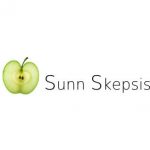
Sunn Skepsis
Denne portalen er ment å gi deg som pasient råd om kvalitetskriterier for helseinformasjon og tilgang til forskningsbasert informasjon.
| 0 Comments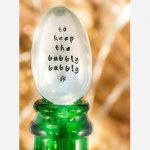
How can you know if the spoon works?
Short, small group exercise on how to design a fair comparison using the "claim" that a spoon helps retain the bubbles in champagne.
| 0 Comments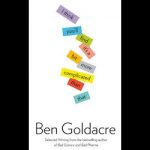
Anecdotes are great – if they convey data accurately
Ben Goldacre gives examples of how conclusions based on anecdotes and biased research can be damagingly misleading.
| 0 Comments
Studies of studies show that we get things wrong
Ben Goldacre gives examples of how conclusions based on anecdotes and biased research can be damagingly misleading.
| 0 Comments
NMT are suing Dr Wilmshurst. So how trustworthy are this company? Let’s look at their website…
Ben Goldacre celebrates Peter Wilmshurst, the doctor who blew the whistle on research misconduct in a study to which he was a contributor.
| 0 Comments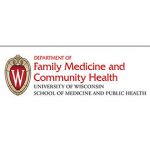
Introduction to Evidence-Based Medicine
Bill Caley’s 26 slides with notes used as an ‘Introduction to Evidence-Based Medicine’.
| 0 Comments
MMR: the facts in the case of Dr Andrew Wakefield
This 15-page cartoon explains the events surrounding the MMR controversy, and provides links to the relevant evidence.
| 5 Comments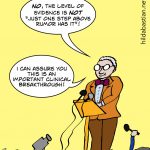
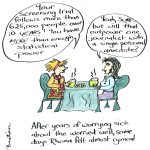

Smart Health Choices: making sense of health advice
The Smart Health Choices e-book explains how to make informed health decisions.
| 0 Comments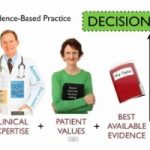
Some Studies That I Like to Quote
This short music video encourages health professionals to use evidence to help reach treatment decisions in partnership with patients.
| 0 Comments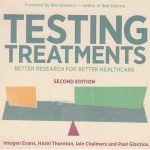
เรื่องเล่าก็เป็นแค่เรื่องเล่า
“สมองของเราดูจะโปรดปรานเรื่องที่เล่าต่อๆ กันมา เราเรียนรู้ได้ง่ายที่สุดผ่านเรื่องเล่าที่น่าสนใจ แต่ผมตกใจที่ผู้คนมากมาย ซึ่งรวมถึงเพื่อนผมหลายคน ไม่เห็นหลุมพรางของวิธีนี้ วิทยาศาสตร์รู้ ว่าเรื่องเล่าและประสบการณ์ส่วนตัวนั้นกลับขาวเป็นดำได้ จึงต้องมีผลที่ตรวจสอบได้และทำซ้ำได้ ในทางกลับกัน การแพทย์ช่วยให้วิทยาศาสตร์ก้าวหน้าได้น้อยมาก มนุษย์มีความหลากหลายมากจนไม่อาจมั่นใจอะไรได้เลยในการรักษาผู้ป่วยแต่ละคน จึงมีช่องว่างเหลือเฟือให้ใช้การคาดเดา แต่เราต้องชัดเจนว่าขอบเขตอยู่ตรงไหน เพราะหากเราล้ำเส้นจะทำลายหลักการของวิทยาศาสตร์ทันทีจะกลายเป็นเอาง่ายเข้าว่าจนข้อเท็จจริงและความคิดเห็นปนเปกันแทบแยกไม่ออก” Ross N. Foreword. In: Ernst […]
| 0 Comments
ไดเอทิลสติลเบสทรอล (Diethylstillbestrol หรือ DES)
นานมาแล้วแพทย์ไม่แน่ใจว่าหญิงมีครรภ์ซึ่งเคยแท้งและทารกเสียชีวิตในครรภ์ ควรได้เอสโตรเจน[ช]สังเคราะห์ (ไม่ได้เกิดตามธรรมชาติ) ที่เรียก ว่า DES เสริมหรือไม่ จึงมีแพทย์เพียงบางรายสั่งยานี้ DES เริ่มเป็นที่นิยมในช่วงต้นทศวรรษ 1950 เพราะความคิดที่ว่ามันช่วยแก้อาการที่รกทำงานผิดปกติ ซึ่งเชื่อว่าเป็นต้นเหตุของปัญหา กลุ่มที่ใช้ยามั่นใจขึ้นด้วยรายงานจากประสบการณ์ของหญิงที่เคยแท้งและทารกเสียชีวิตในครรภ์ แต่คลอดทารกปลอดภัยหลังใช้ DES ตัวอย่างเช่น สูตินรีแพทย์ชาวสหราชอาณาจักรสั่งยา DES ให้หญิงมีครรภ์รายหนึ่งตั้งแต่ช่วงแรกของการตั้งครรภ์ […]
| 0 Comments
บทที่ 2 หวังไปก็ไร้ผล
ประเด็นสำคัญ ไม่ว่าทฤษฎี หรือความเห็นผู้เชี่ยวชาญ ก็ไม่ใช่แนวทางที่เชื่อถือได้ในการเลือกที่ปลอดภัยและได้ผล แค่เพราะวิธีการรักษานั้น “เป็นที่ยอมรับ” ไม่ได้หมายความว่ามีผลดีมากกว่าเสีย แม้วิธีการรักษาที่ยังไม่ได้ประเมินอย่างเหมาะสมจะไม่อันตรายต่อผู้ป่วย แต่ก็อาจทำให้ทรัพยากรทั้งของประชาชนและของสังคมเสียเปล่า วิธีการรักษาบางอย่างนั้นใช้กันมานานก่อนจะรู้ว่ามีโทษมากกว่าประโยชน์ ผลดีต่างๆ ที่คาดหวังแต่แรกอาจไม่เกิดขึ้นจริง ในบทนี้เราจะอธิบายว่าทำไมจึงเป็นเช่นนั้น ถัดไป: คำแนะนำเกี่ยวกับท่านอนของทารก
| 2 CommentsNo Resources Found
Try clearing your filters or selecting different ones.
